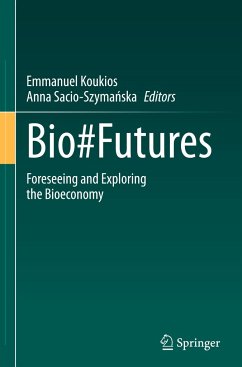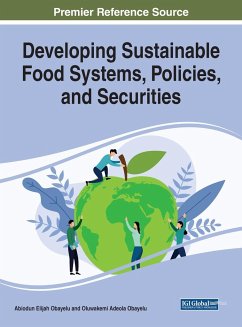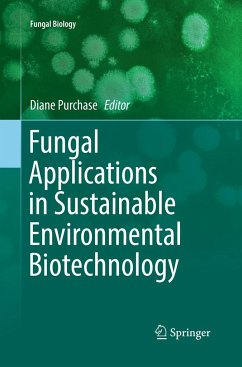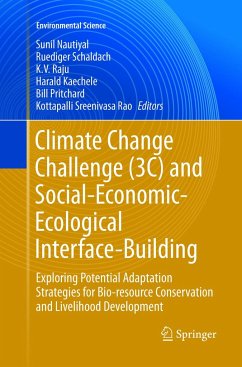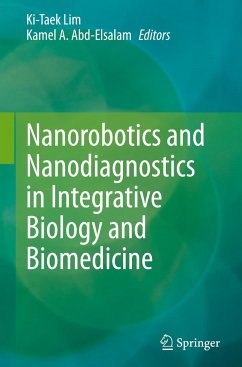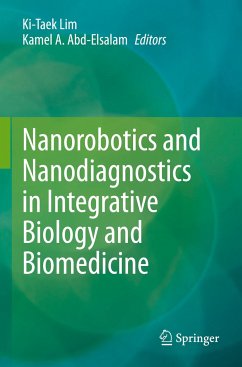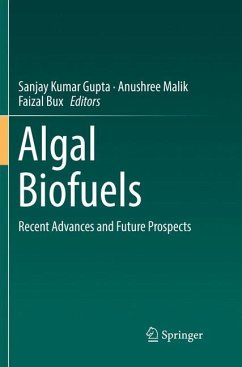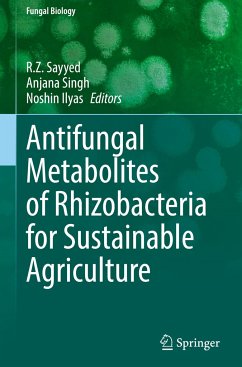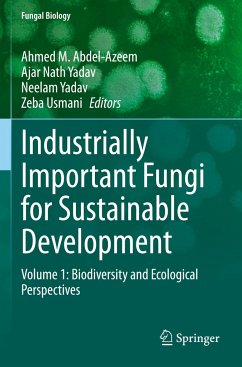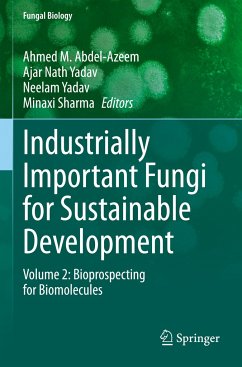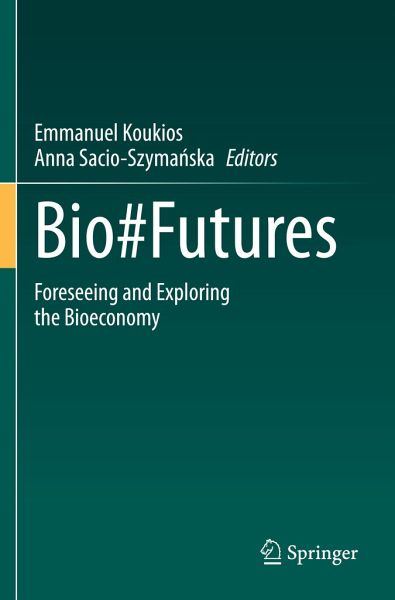
Bio#Futures
Foreseeing and Exploring the Bioeconomy
Herausgegeben: Koukios, Emmanuel; Sacio-Szymanska, Anna
Versandkostenfrei!
Versandfertig in 6-10 Tagen
121,99 €
inkl. MwSt.

PAYBACK Punkte
61 °P sammeln!
This volume presents a timely recognition, warning and mapping of the fast approaching wave, or "bio-tsunami", of global socio-technical transformation, built by a much wider spectrum of converging powers, including biotechnology, new agriculture, novel foods, health, quality of life, environment, energy, sustainability, education, knowledge management, and design of smart applications. The book contains eight sections corresponding to different clusters of bioeconomic and socio-technical change, as identified by the editors' "Scanning the Horizon" foresight research; it also offers an integra...
This volume presents a timely recognition, warning and mapping of the fast approaching wave, or "bio-tsunami", of global socio-technical transformation, built by a much wider spectrum of converging powers, including biotechnology, new agriculture, novel foods, health, quality of life, environment, energy, sustainability, education, knowledge management, and design of smart applications. The book contains eight sections corresponding to different clusters of bioeconomic and socio-technical change, as identified by the editors' "Scanning the Horizon" foresight research; it also offers an integrated view of the future bioeconomy landscape though the convergence of several technologies that affect everyday life. The clusters offer methodologies for forecasting the future bioeconomy, and how these predictions can affect target-setting and the orientation of policies and actions to manage cultural and societal change, and achieve sustainable development in less developed areas. The book willbe of interest to researchers, producers, logistics experts, policy makers, regulators, business and financial institutions, and biotechnologists (e.g. geneticists, food experts, etc.).



